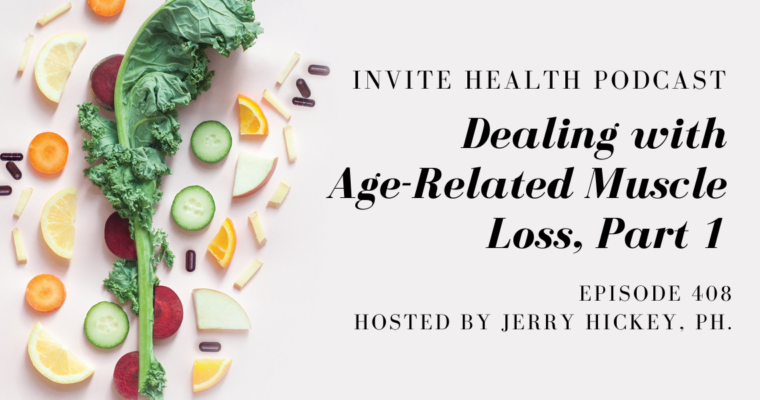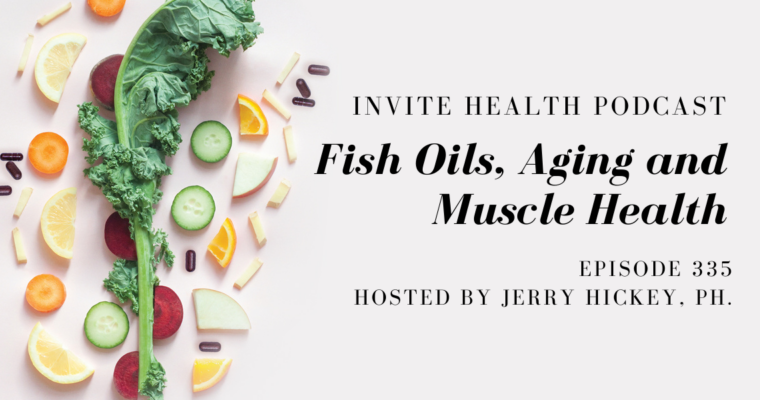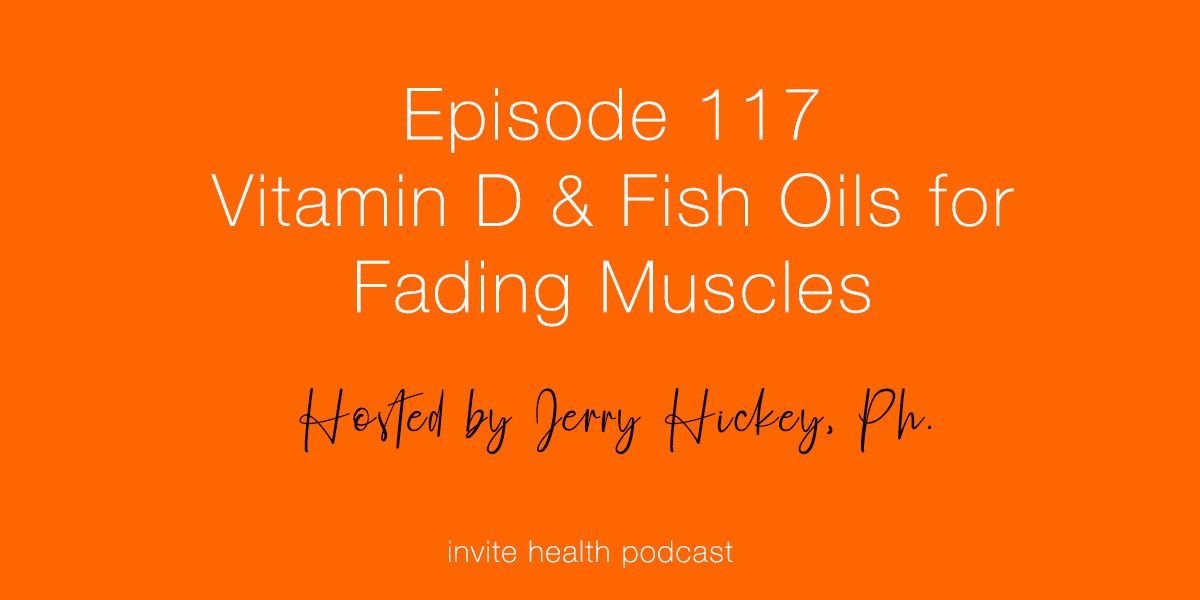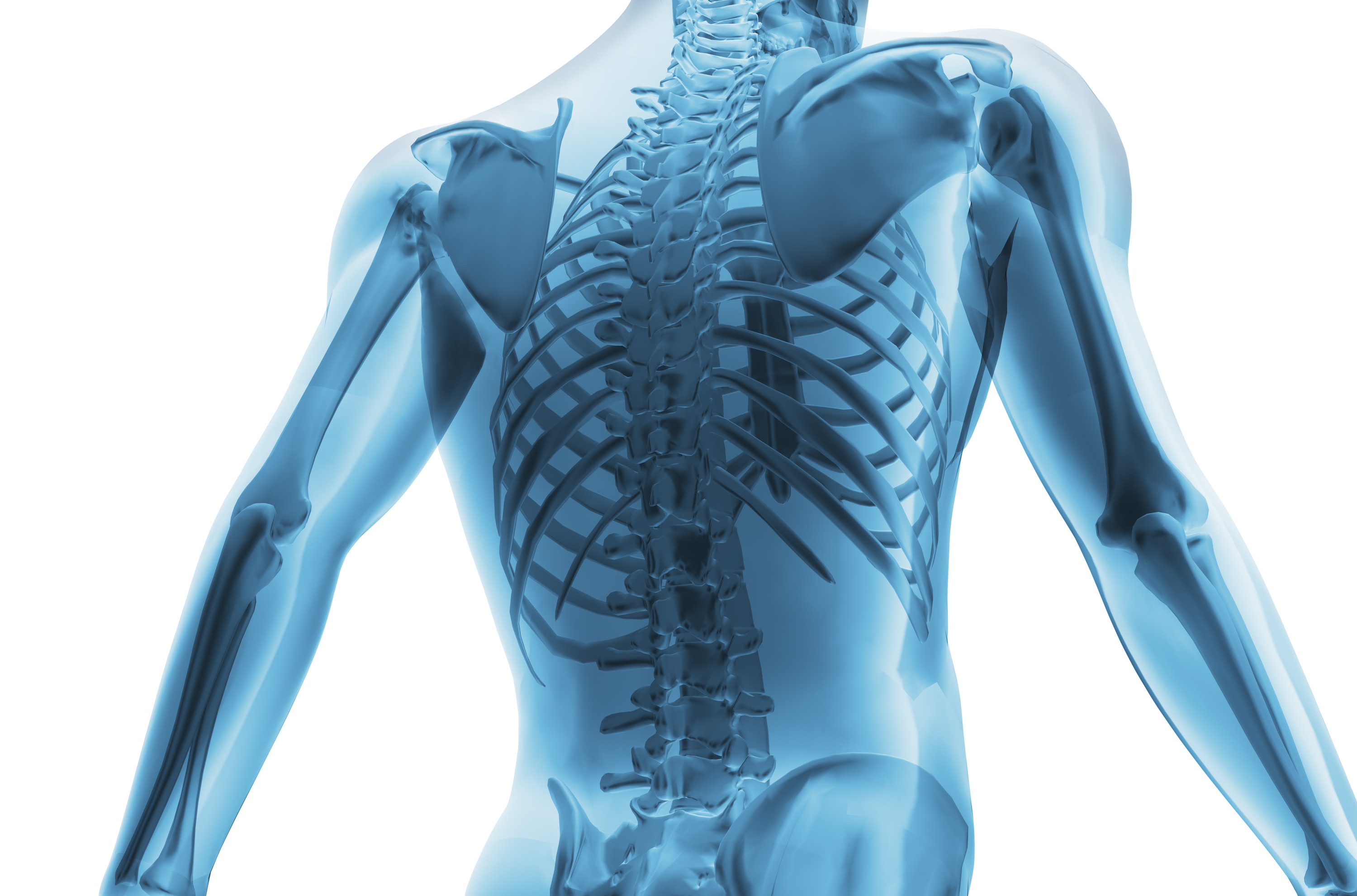Invite Health Podcast, Episode hosted by Jerry Hickey. Ph
Subscribe Today!
There is an important term called Sarcopenia and it is the age-related loss of strength and muscle. It leads to a decline in function and eventually leads to frailty and disability. In our 40s, if we are inactive and not eating enough protein and getting enough nutrients, we tend to lose strength and muscle. In fact, muscle loss can become so severe that it is related to falls and fractures in the elderly.
Why do we lose muscle as we age?
No one can really tell you why exactly we lose muscle with age, but it sure takes off in our 60s. Likely causes of muscle loss include;
- Drop in nutrients, such as Carnitine and Ubiquinol production
- Decline in hormones and growth factors, including testosterone and HGH
- Reduced ability to utilize protein
- Reduced quality of diet
- Inactivity
- Age-related changes to muscle
Learn how to prevent muscle soreness after exercise. Listen now >>

Supporting healthy muscle function
Protein is very important to support healthy muscle function. Whey Protein is my favorite protein. It contains all nine essential amino acids, along with plenty of BCAA and provides a helpful blend of essential proteins derived from Whey. Whey Protein has been shown to help build lean body mass and help to restore muscle proteins, which must be repaired constantly due to daily wear-and-tear from exercise. It can help to improve satiation, or the feeling of fullness, when taken after a meal. When offered in isolate form, it is separated from the dairy source to remove fat and lactose but leave concentrated protein which means it is better tolerated by individuals who are otherwise sensitive to dairy.
Working out at home? Stay healthy with the NEW Invite Wellness Program. Listen now >>
Vitamin D deficiency is very common across the United States population. There are numerous studies that have shown that a decreased risk of falls in the elderly are due to adequate amounts of Vitamin D levels. Vitamin D is essential for the development and maintenance of healthy bone. It is also touted as a beneficial vitamin for the immune and cardiovascular system. Studies have also shown that people who have a higher body and muscle mass also have higher levels of vitamin D in their system.
Fish Oil is commonly taken to support heart health and brain health. But for years, many fitness enthusiasts like bodybuilders have utilized fish oil supplements, and for good reason. According to a study performed by the Mayo Clinic College of Medicine and published in the journal Aging, the anti-inflammatory properties of fish oil were shown to enhance muscle sensitivity to protein and resistance training, allowing for greater gains in size and strength as you age.
Thank you for tuning in to the Invite Health Podcast. You can find all of our episodes for free wherever you listen to podcasts or by visiting www.invitehealth.com/podcast. Make sure you subscribe and leave us a review! Follow us on Facebook, Twitter and Instagram at Invite Health today. We’ll see you next time on another episode of the Invite Health Podcast.









